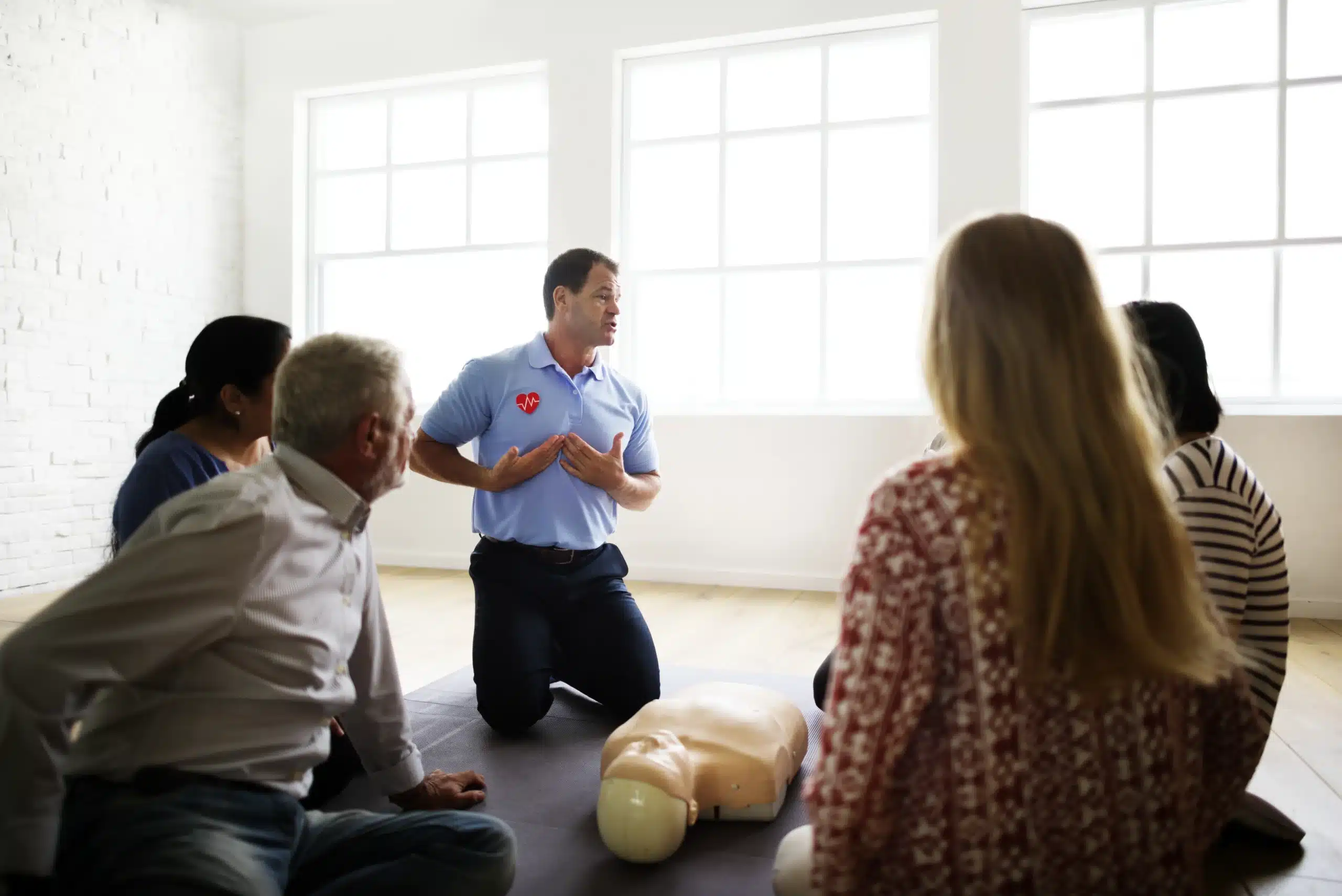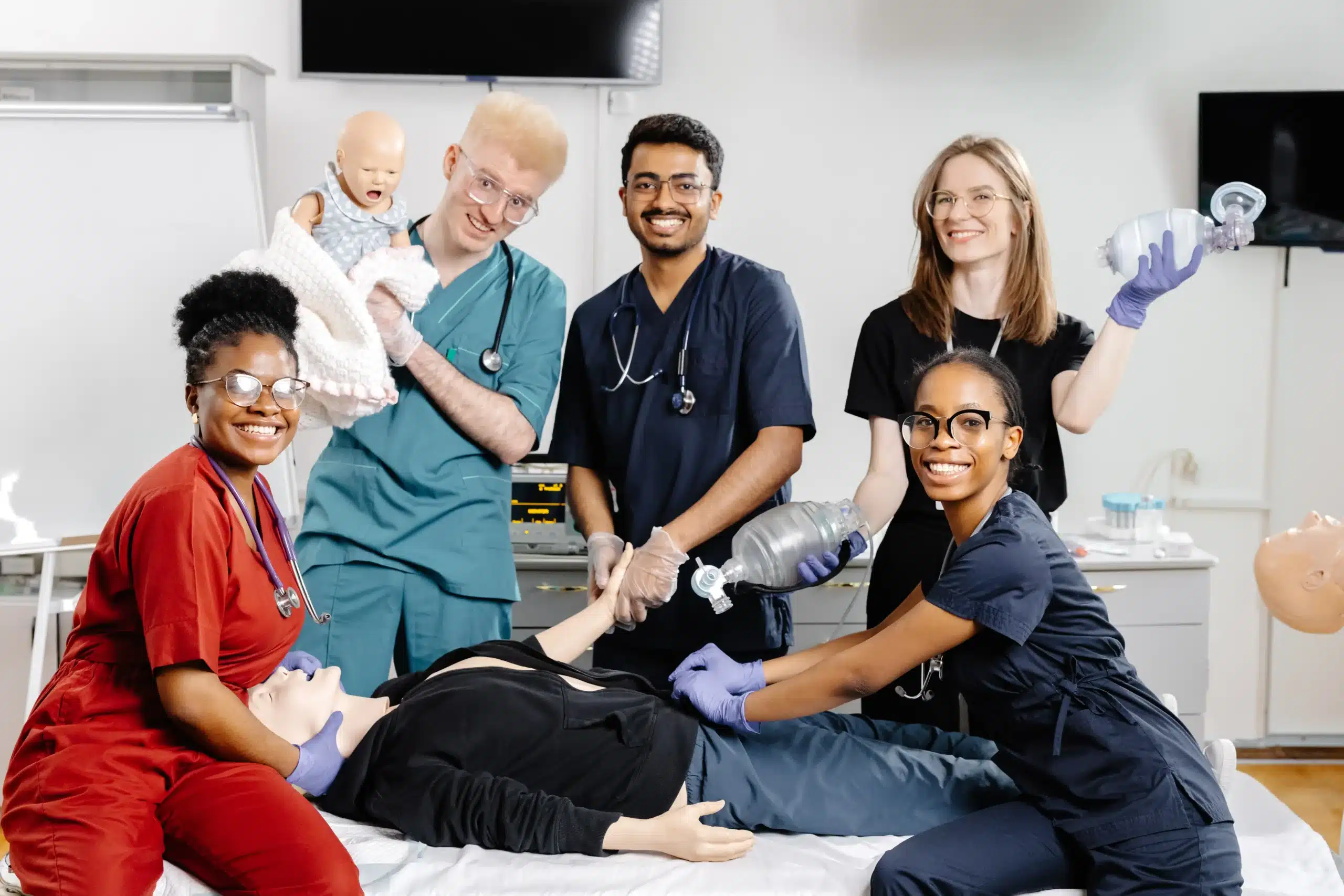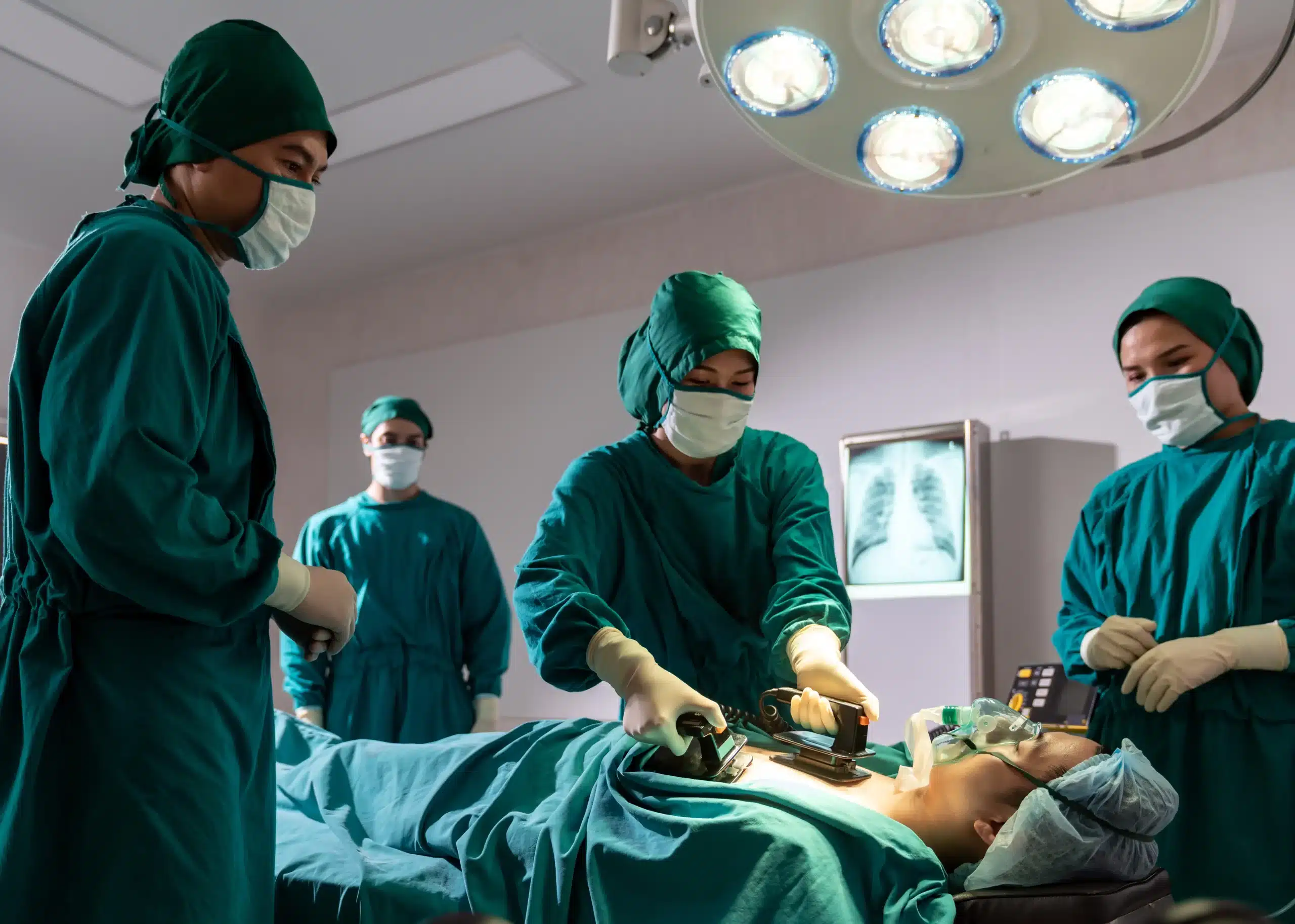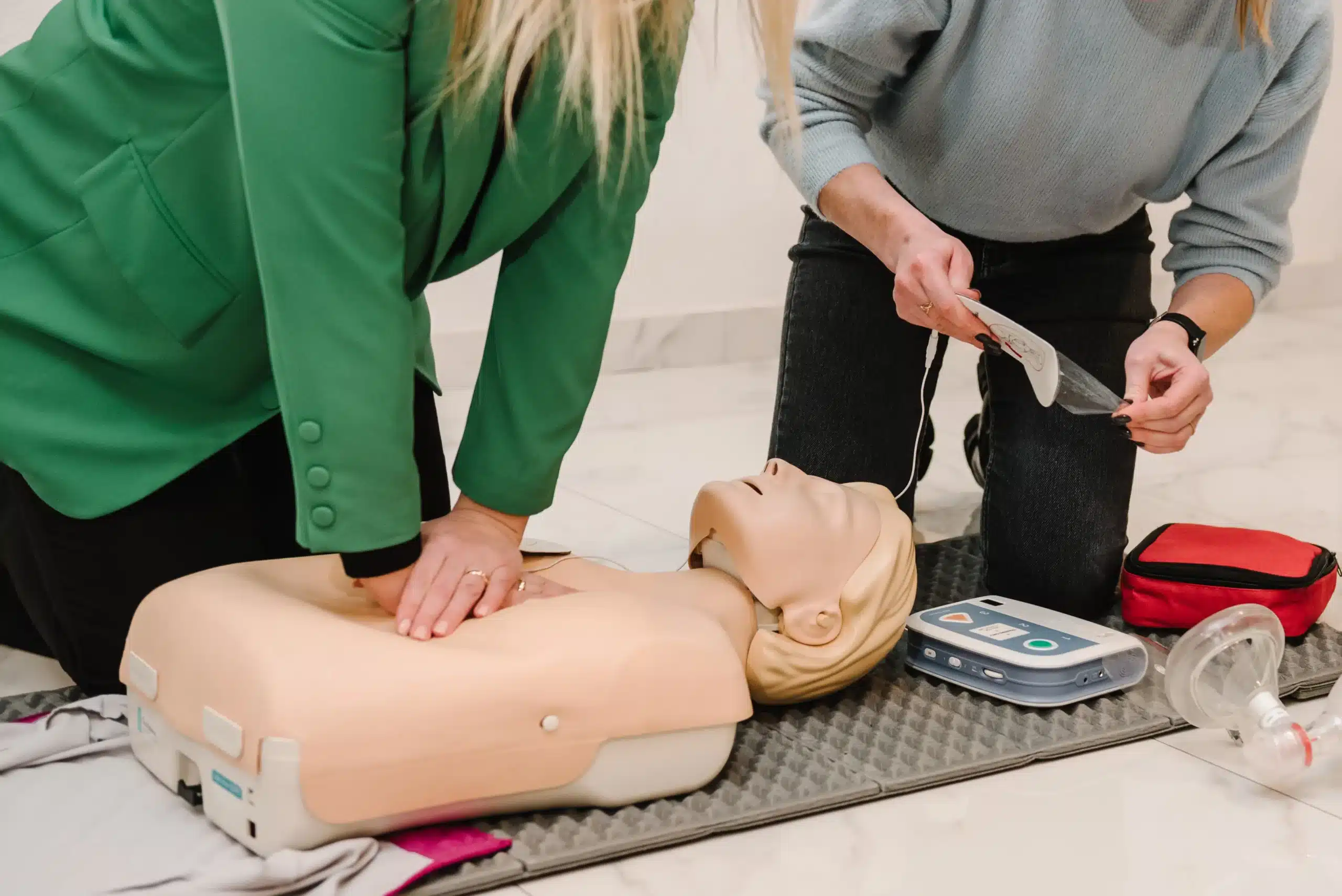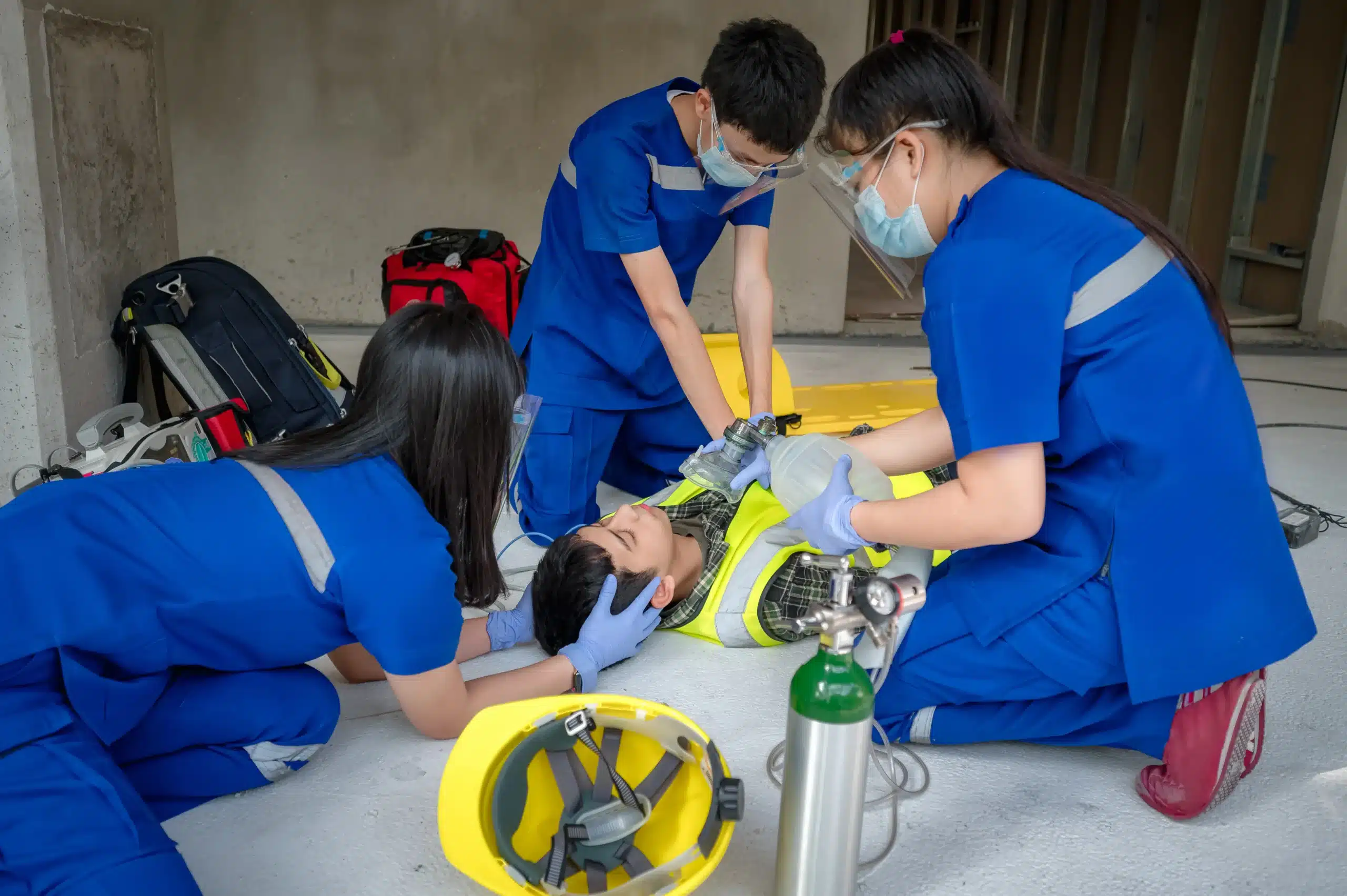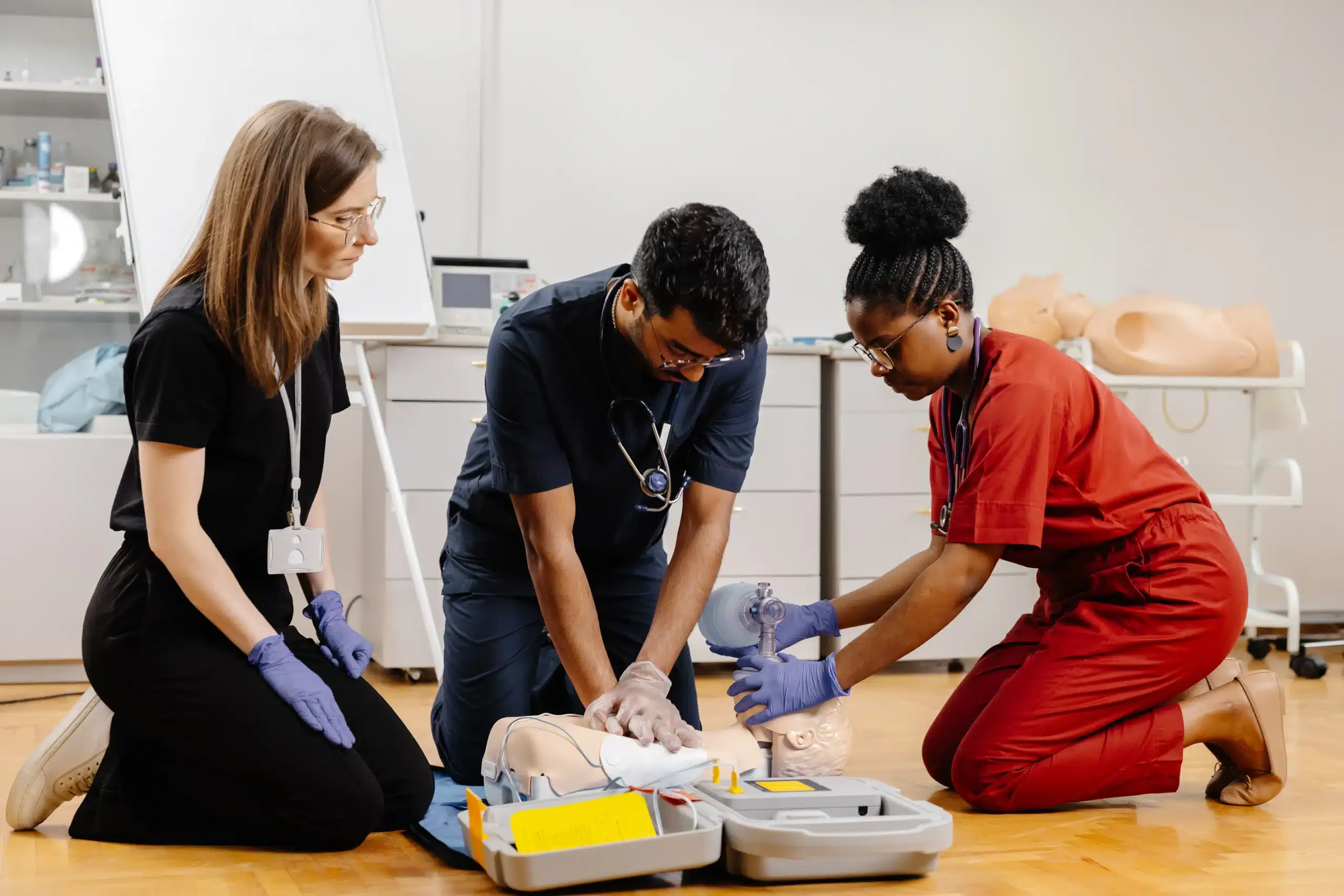Seconds can matter when a newborn experiences difficulties breathing or requires immediate medical attention. The Neonatal Resuscitation Program (NRP) empowers healthcare professionals in Concord with the knowledge and skills to respond effectively in these critical moments. But what exactly does NRP certification involve, and why is it so important? This article provides a comprehensive overview of NRP in Concord, exploring the course structure, content, and the benefits it offers healthcare providers. Whether you’re a seasoned professional or just starting your career in neonatal care, understanding the value of NRP is crucial. We’ll guide you through the process of obtaining NRP certification, highlighting local training centers and addressing common concerns.
Key Takeaways
- NRP certification equips you for neonatal emergencies: This training provides the knowledge and hands-on skills to confidently manage newborns in distress, leading to better outcomes. Prioritize programs aligned with AAP and AHA guidelines.
- Select your NRP course wisely: Consider factors like instructor experience, training center reputation, and program cost. A blended learning format offers flexibility, while convenient locations and schedules make training more accessible.
- NRP training is a valuable investment: The skills, confidence, and teamwork you gain are invaluable for your career and the well-being of newborns. This specialized training transforms you into a capable and confident member of the neonatal care team.
What is NRP? Essential Training for Neonatal Care in Concord
The Neonatal Resuscitation Program (NRP) equips healthcare professionals with the skills to respond to newborn emergencies. Developed by the American Academy of Pediatrics (AAP) and endorsed by the American Heart Association (AHA), the NRP course focuses on the immediate care of newborns needing assistance at birth. This training is essential for reducing neonatal mortality and improving outcomes for infants in distress.
NRP emphasizes hands-on learning, allowing participants to practice essential skills in a safe environment. This practical approach ensures healthcare providers can deliver timely and effective care when newborns experience life-threatening situations. For healthcare professionals in Concord, NRP certification builds competency in neonatal resuscitation, leading to better outcomes. Consider pairing your NRP training with PALS certification to strengthen your skills in pediatric emergency care.
Why NRP Certification Matters
As a healthcare provider, you know that seconds can matter in a newborn’s life. Neonatal Resuscitation Program (NRP) certification provides the skills and confidence to act quickly and effectively in those critical moments. It’s not just a certificate; it’s a testament to your dedication to providing the highest quality of care for newborns. Whether you’re a seasoned professional or just starting your career, NRP certification demonstrates your commitment to staying at the forefront of neonatal care.
Essential NRP Skills and Knowledge
NRP certification, endorsed by the American Heart Association (AHA), equips healthcare professionals with the core knowledge and techniques needed for successful neonatal resuscitation. These NRP classes cover everything from initial assessment and airway management to effective chest compressions and medication administration. You’ll learn how to integrate these skills seamlessly, ensuring you can respond confidently to a range of neonatal emergencies. This comprehensive training provides a strong foundation for evidence-based practice, empowering you to make informed decisions in high-pressure situations.
Addressing Neonatal Emergency Challenges
Neonatal emergencies are, thankfully, rare, but when they do occur, immediate and effective intervention is crucial. NRP certification prepares you for these challenges by providing standardized, evidence-based protocols. NRP training empowers healthcare providers to address a variety of critical situations, from respiratory distress to cardiac emergencies, ensuring the best possible outcomes for newborns. By promoting consistent best practices, NRP certification helps reduce variability in care and improve the chances of survival and long-term well-being for these vulnerable patients.
NRP Course Structure and Content
Understanding the structure and content of the NRP course is key to preparing for this important certification. It blends online learning with crucial hands-on training to give you a well-rounded experience.
Online Learning
The NRP course begins with a self-paced online learning module. This portion typically takes around three hours to complete and covers the foundational knowledge and skills needed for neonatal resuscitation. You’ll work through interactive lessons and case studies at your own speed, building a solid understanding of the core concepts before moving on to practical application. This online component allows flexibility and ensures everyone starts the hands-on portion with the same baseline understanding. Our NRP course follows the American Academy of Pediatrics guidelines to provide the most up-to-date information.
Hands-On Skills and Simulation Training
After completing the online modules, you’ll participate in a hands-on skills session. This in-person training, usually lasting about three hours, focuses on practical application and simulation. You’ll work with experienced instructors and realistic mannequins to practice essential newborn resuscitation techniques. This includes everything from airway management and ventilation to chest compressions and medication administration. This immersive experience bridges the gap between theory and practice, building your confidence and competence in real-world scenarios.
Key NRP Topics
The NRP course covers a comprehensive range of topics essential for effective neonatal resuscitation. You’ll learn how to assess a newborn’s condition immediately after birth, perform effective airway management techniques, provide proper ventilation support, and administer chest compressions when necessary. The curriculum also emphasizes the importance of teamwork and communication in emergency situations, preparing you to work effectively as part of a coordinated resuscitation team. Beyond the immediate interventions, the course also covers post-resuscitation care and stabilization techniques. This holistic approach ensures you’re prepared for every stage of neonatal care in emergency situations. For more information on our NRP course offerings, visit our NRP certification page.
NRP Training Centers in Concord
Finding the right NRP training center is crucial for healthcare providers seeking comprehensive and reliable neonatal resuscitation training. Concord offers several options, each with its own strengths. This section highlights some of the providers in the area, allowing you to compare and choose the best fit for your needs.
Safety Training Seminars
Safety Training Seminars prides itself on offering competitive pricing for NRP courses in Northern California. Their blended learning approach combines online coursework with essential hands-on skills testing. This format ensures participants develop both the theoretical knowledge and practical skills to confidently manage neonatal emergencies. For those seeking convenient and affordable NRP training, Safety Training Seminars is a strong contender.
Other Local Providers
Several other reputable organizations offer NRP training in or near Concord. Exploring these options can help you find the perfect match for your schedule and learning style.
Bay Area CPR
Bay Area CPR provides NRP courses and renewal classes in several Bay Area locations, including Concord. They emphasize the program’s importance for healthcare providers in managing newborns requiring immediate care after birth. Their focus on practical application makes them a solid choice for those seeking hands-on training experience.
Cascade Training
Cascade Training offers NRP training designed to empower healthcare providers with the skills and knowledge needed to respond effectively in neonatal resuscitation situations. They highlight the critical role of this training in ensuring newborn safety and health.
Surefire CPR
Surefire CPR stresses the significance of NRP training for healthcare professionals. They aim to equip individuals in critical care roles with the tools and resources necessary to save newborn lives in emergencies. Their emphasis on rigorous training makes them a suitable option for those seeking in-depth preparation.
NRP Certification: Cost and Value
Standard Pricing and Packages
The cost of NRP certification typically covers the online course, in-person skills test, and the official AAP NRP certification card. You can expect to pay around $280 for a comprehensive NRP certification package that includes all the components needed for certification. This ensures you receive both the theoretical knowledge and practical skills training essential for neonatal resuscitation. Check with your chosen provider for their exact pricing.
Discounts and Savings
Many NRP course providers offer competitive pricing and guarantees. Look for providers who offer a low price guarantee. Some providers will even match a competitor’s lower price, making this important training accessible to everyone. It’s always a good idea to inquire about potential discounts, especially if you’re registering with a group. Safety Training Seminars offers discounts for group CPR training.
Return on Investment
Earning your NRP certification is an investment in your career and the lives of newborns. While there’s an upfront cost, the value of the skills you gain goes far beyond the price tag. NRP training equips healthcare professionals with the critical skills and protocols needed to manage newborns requiring immediate care after birth. This specialized training empowers you to respond effectively to neonatal emergencies, ultimately improving outcomes for these vulnerable infants. The ability to provide this high level of care makes NRP certification an invaluable asset.
Instructor Qualifications and Training Center Reputation
Choosing the right NRP certification course hinges on several factors, but the instructor’s expertise and the training center’s reputation are paramount. These elements directly impact the quality of your training and your preparedness for real-life neonatal emergencies.
Instructor Expertise
NRP instructors bear the responsibility of equipping healthcare professionals with the skills to handle newborn emergencies. Look for instructors with extensive experience in neonatal resuscitation, ideally with backgrounds as practicing healthcare providers. This real-world experience translates into practical instruction that goes beyond the textbook. The NRP program emphasizes hands-on learning, so an instructor’s ability to guide you through simulations and scenarios is essential. Inquire about the instructor’s background—a reputable training center will readily share this information. Concord CPR classes often highlight instructor qualifications.
Accreditation and Recognition
A training center’s accreditation demonstrates its commitment to quality. The American Academy of Pediatrics (AAP) and the American Heart Association (AHA) are key organizations involved in NRP; look for courses affiliated with these institutions. This affiliation ensures the curriculum adheres to the latest guidelines. Verify that the training center offers recognized certification. This is especially important if your workplace requires specific credentials. For healthcare professionals involved in newborn care—including neonatologists, pediatricians, nurses, and midwives—choosing a recognized program is crucial. This ensures your certification holds weight and demonstrates your commitment to a high standard of care.
The NRP Certification Process
Assessment Methods
The Neonatal Resuscitation Program (NRP) certification process, offered by the American Academy of Pediatrics (AAP) and endorsed by the American Heart Association (AHA), focuses on evaluating both your knowledge and practical skills. You’ll participate in interactive lessons and simulated scenarios designed to mirror real-life neonatal emergencies. These simulations allow you to apply the techniques learned throughout the NRP course, demonstrating your proficiency in a controlled environment. This hands-on approach ensures you’re prepared to handle the complexities and pressures of a real emergency. Expect a combination of written exams and practical skills assessments to gauge your overall competency.
Certification Validity and Renewal
Once you successfully complete the NRP program, you’ll receive a digital NRP Provider certification card through the AAP. This NRP certification is valid for two years. Renewal requires completing the NRP course again before your current certification expires. This ensures your skills and knowledge remain current with the latest advancements in neonatal resuscitation techniques. This two-year renewal cycle is standard for healthcare professionals involved in newborn care, including neonatologists, pediatricians, obstetricians, nurses, midwives, and respiratory therapists. Staying current with your NRP certification demonstrates your commitment to providing high-quality care to newborns.
Benefits of NRP Training
NRP training offers significant advantages for healthcare professionals working with newborns. It goes beyond simply learning the steps; it’s about building confidence, improving teamwork, and ultimately, being prepared to provide the best possible care during a critical moment.
Improved Confidence and Competence
Mastering the skills required for neonatal resuscitation takes dedicated practice and training. Studies show that hands-on NRP training, especially in focused sessions, directly leads to improved competence and increased confidence in performing these essential skills. This boost in confidence translates to more effective action in real-world scenarios. When seconds count, having confidence in your abilities can make all the difference. Knowing you can effectively apply techniques like positive pressure ventilation or chest compressions allows you to respond quickly and decisively. This practical training00255-6/fulltext) equips healthcare providers with the knowledge and skills they need to handle neonatal emergencies. NRP certification empowers providers to deliver immediate, life-saving interventions, transforming them into truly capable and confident members of the neonatal care team. This certification provides the foundation for confident and competent neonatal care.
Enhanced Team Collaboration
Effective neonatal resuscitation often requires a coordinated team effort. NRP training plays a vital role in fostering this teamwork by providing a common framework and language for communication, ensuring everyone on the team is on the same page. This shared understanding streamlines responses, minimizes confusion, and maximizes efficiency during critical situations. Certified healthcare providers become integral members of the resuscitation team, ready to contribute their expertise and work together seamlessly. NRP training creates a collaborative environment where professionals can confidently rely on each other, ultimately leading to better outcomes for newborns in distress. These courses emphasize the importance of coordinated teamwork, transforming healthcare professionals into a cohesive unit capable of delivering the highest level of care.
Addressing NRP Course Concerns
We understand that healthcare providers considering NRP certification may have some questions. Let’s address some common concerns to help you feel confident about pursuing this vital training.
Course Complexity and Accessibility
The Neonatal Resuscitation Program (NRP) equips healthcare professionals with the knowledge and skills to handle neonatal emergencies. While comprehensive, the program is presented clearly and accessibly. The NRP course empowers providers with the tools and resources they need to confidently respond to newborns in distress. It’s structured to build competence step by step, from foundational knowledge to advanced resuscitation techniques. Think of it as building blocks, each layer strengthening your overall skillset.
Time Commitment and Scheduling
We know your time is valuable. NRP courses often use a blended learning approach, combining online modules with in-person skills sessions. This flexible format lets you complete some coursework at your own pace. Check our course schedule for upcoming classes—we offer them frequently to accommodate busy schedules. This blended learning model makes NRP training more manageable and accessible for healthcare providers juggling multiple responsibilities.
Certification Recognition
NRP certification is a nationally recognized credential, demonstrating your proficiency in neonatal resuscitation. It’s the U.S. standard for neonatal care, signifying a commitment to providing high-quality care for newborns. Completing the program earns you an NRP Provider certification card through the American Academy of Pediatrics (AAP), valid for two years. This widely accepted certification enhances your professional credentials and shows your dedication to best practices in neonatal care. It’s a valuable asset for any healthcare provider working with newborns.
Choosing the Right NRP Course
Factors to Consider
Finding the right Neonatal Resuscitation Program (NRP) course is crucial for healthcare professionals responsible for newborn care. Several factors warrant careful consideration. First, confirm the program aligns with the guidelines from the American Academy of Pediatrics (AAP) and has the endorsement of the American Heart Association (AHA). This ensures the course content reflects current best practices for neonatal resuscitation. These NRP courses are designed for various healthcare providers, including neonatologists, pediatricians, nurses, and midwives—anyone regularly involved with newborn care. A good NRP course emphasizes hands-on learning, using simulations and practical exercises to build confidence and competence in real-world scenarios. Finally, verify that completing the course earns you an official NRP Provider certification card through the AAP, usually valid for two years.
Making an Informed Decision
Once you’ve identified potential NRP courses, compare them based on a few key criteria. Ask about the total program cost, making sure it includes online modules, the in-person skills test, and the certification card. Safety Training Seminars offers a low price guarantee, matching valid AAP NRP courses with lower prices. Consider the course location and schedule. Is it convenient and compatible with your work commitments? Bay Area CPR offers classes in several locations, including San Francisco, Concord, and Milpitas. Don’t underestimate the value of a reputable training center with experienced instructors. A strong track record and positive reviews can assure you of the quality of instruction and support. The NRP program plays a vital role in improving outcomes for newborns, so investing in a quality course benefits your professional development and your tiny patients’ well-being.
Related Articles
- NRP Certification Classes in Brentwood, CA – Brentwood CPR Classes
- Brentwood CPR Classes: Your Complete Guide – Brentwood CPR Classes
- BLS ACLS PALS Training: Your Ultimate Guide – Brentwood CPR Classes
- Why CPR is Crucial in Healthcare
- Discover Concord: Landmarks & Activities – Brentwood CPR Classes
Frequently Asked Questions
Why is NRP Certification Important?
NRP certification is crucial for healthcare professionals involved in newborn care. It equips you with the essential skills to respond effectively to emergencies, potentially saving lives. This specialized training goes beyond basic life support and focuses on the unique needs of newborns, covering everything from airway management to post-resuscitation care. It’s a recognized credential that demonstrates your commitment to providing the highest standard of care for these vulnerable patients.
What Does NRP Training Cover?
NRP training provides a comprehensive curriculum that includes initial assessment of newborns, effective airway management techniques, proper ventilation support, and chest compressions. The program also emphasizes teamwork and communication, preparing you to work effectively within a resuscitation team. You’ll learn how to integrate these skills seamlessly, ensuring you can respond confidently to a range of neonatal emergencies.
How Long Does NRP Certification Last, and How Do I Renew It?
NRP certification is typically valid for two years. To renew, you’ll need to retake the NRP course before your current certification expires. This ensures you stay up-to-date with the latest advancements in neonatal resuscitation techniques and maintain your proficiency in providing critical care to newborns.
How Much Does NRP Certification Cost, and Are Discounts Available?
The cost of NRP certification varies but generally covers the online learning materials, in-person skills session, and the official certification card. Many training centers offer competitive pricing and discounts, especially for group registrations. It’s always a good idea to contact the provider directly to inquire about specific pricing and any available discounts.
How Do I Choose the Right NRP Training Center?
When selecting an NRP training center, consider factors like instructor experience, program accreditation, and course format. Look for instructors with a strong background in neonatal resuscitation and training centers affiliated with reputable organizations like the American Academy of Pediatrics (AAP) or the American Heart Association (AHA). A convenient location and a schedule that fits your needs are also important considerations.


